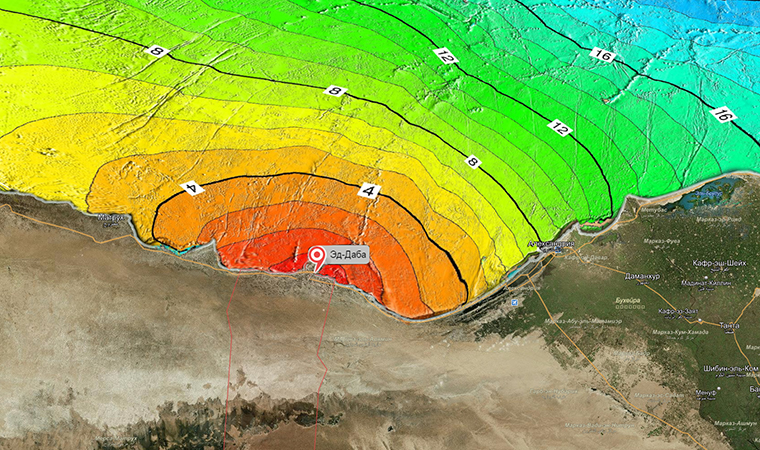
Modeling a tsunami
back to contentsRosatom’s Energoizyskaniya Survey Institute is inviting bids to develop a mathematical emergency model of the region where the first Egyptian nuclear power plant is planned to be built in the future. It will be used by the nuclear plant designers.
The first task is to incorporate meteorological and hydrological data into the model to grasp the conditions in the Mediterranean Sea and at the location of yet-to-be-designed power plant. The second task is to calculate sea level maximums and minimums and their dependence on extreme cyclones in the sea area adjacent to the nuclear construction site. Third, bidders will have to perform a probabilistic assessment of the tsunami height. The initial bidding price is 6.5 million rubles. The model should be completed by July 2017.
On 19 November 2015, Russia and Egypt signed a partnership agreement for the construction and operation of a nuclear station near El Dabaa on the Mediterranean coast. The station will have four 1,200 MW reactor units. Apart from building a nuclear station with enhanced safety systems, the package proposal made by Rosatom implies assistance to Egypt in creating a nuclear industry in the country.
The construction project is of strategic importance for Egypt as its development is clearly hampered by the shortage of cheap energy. Oil, which is the primary fuel in the country, is imported while demand for electric power rises by 7% annually. “We need power to expand our production capacities. This will offer more opportunities for the development of medicine, agriculture and other industries, which in turn will create new jobs and raise living standards in our country,” Mohamed Ezz El-Din, Head of Egypt’s Nuclear and Radiological Regulation Association (ENRAA), said earlier. According to Ezz El-Din, the nuclear station construction is crucial for Egypt since its generation capacities run on gas, fuel oil, wind and solar energy are unable to cover all industry needs, and the country is experiencing a considerable power shortage.




